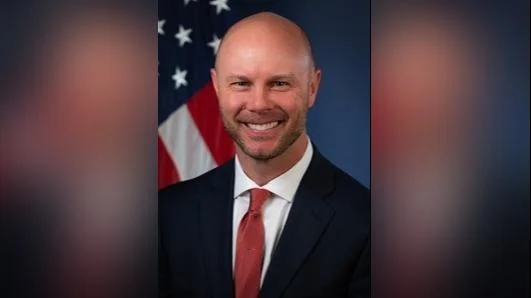Timothy J. Racicot Acting United States Attorney for the District of Montana | Wikipedia
A Seattle resident, Jesse James Cochran, appeared in court for arraignment on charges related to drug distribution on the Fort Belknap Indian Reservation. U.S. Attorney Kurt Alme confirmed the proceedings.
Cochran, 31, pleaded not guilty to an indictment that included one count of conspiracy to possess with intent to distribute controlled substances and one count of possession with intent to distribute controlled substances. If convicted on the most serious charge, Cochran could face a minimum of five years and a maximum of 40 years in prison, along with a $5 million fine and at least four years of supervised release.
The arraignment was overseen by U.S. Magistrate Judge John Johnston. Cochran has been released pending further legal actions.
The first count of the indictment alleges that between October 2022 and June 2024, near the Fort Belknap Indian Reservation, Cochran conspired with a co-defendant to possess with intent to distribute over 40 grams of methamphetamine. The second count claims that during the same period and location, Cochran possessed more than 40 grams of fentanyl with intent to distribute and aided others in doing so.
Assistant U.S. Attorney Amanda Myers is leading the prosecution while the Tri-Agency Task Force conducted the investigation.
It is important to note that charging documents are accusations; defendants are presumed innocent until proven guilty beyond reasonable doubt.
This case falls under Project Safe Neighborhoods (PSN), aimed at reducing violent crime and gun violence through collaboration among law enforcement agencies and communities. On May 26, 2021, a strategy was launched by the Department focusing on community trust-building, supporting preventive organizations against violence, setting strategic enforcement priorities, and measuring outcomes.
For more information about Project Safe Neighborhoods visit Justice.gov/PSN. Case progress can be tracked via PACER system using reference number 24-92 or through U.S. District Court Calendar online services.





